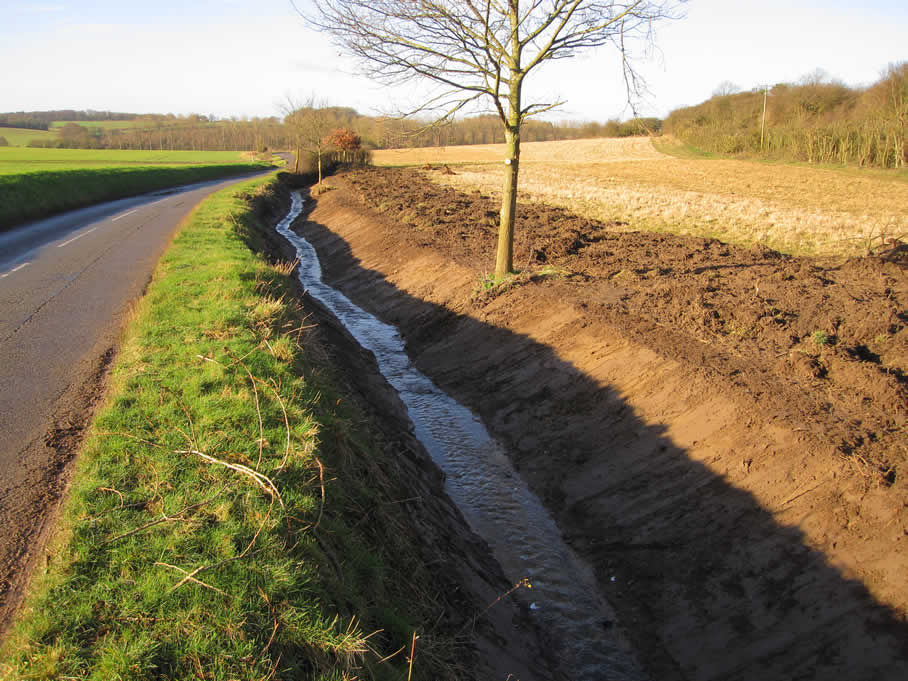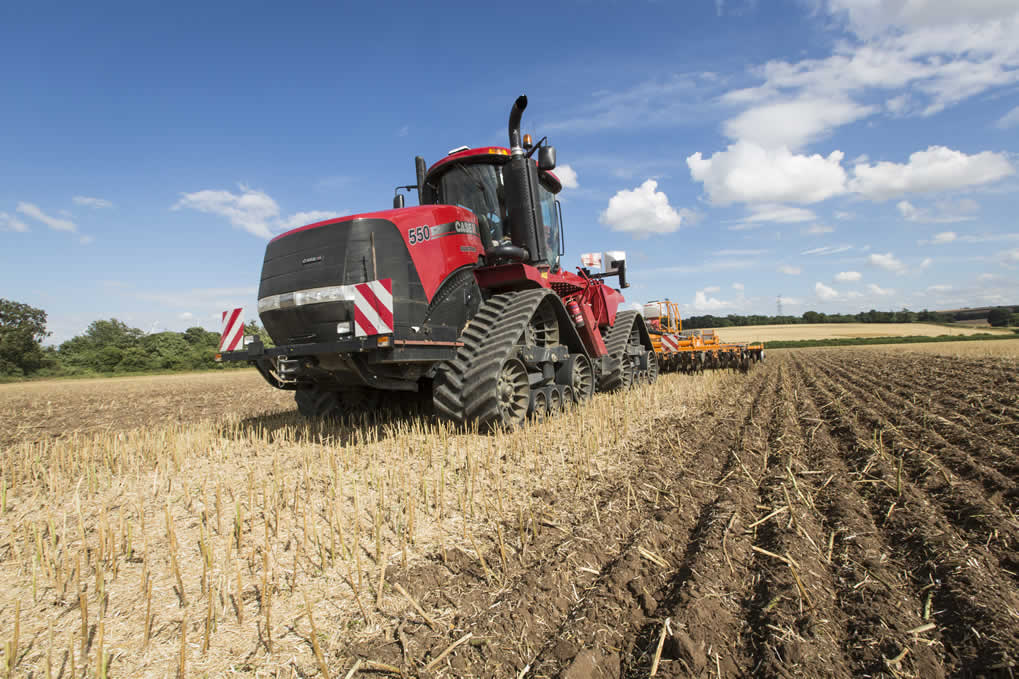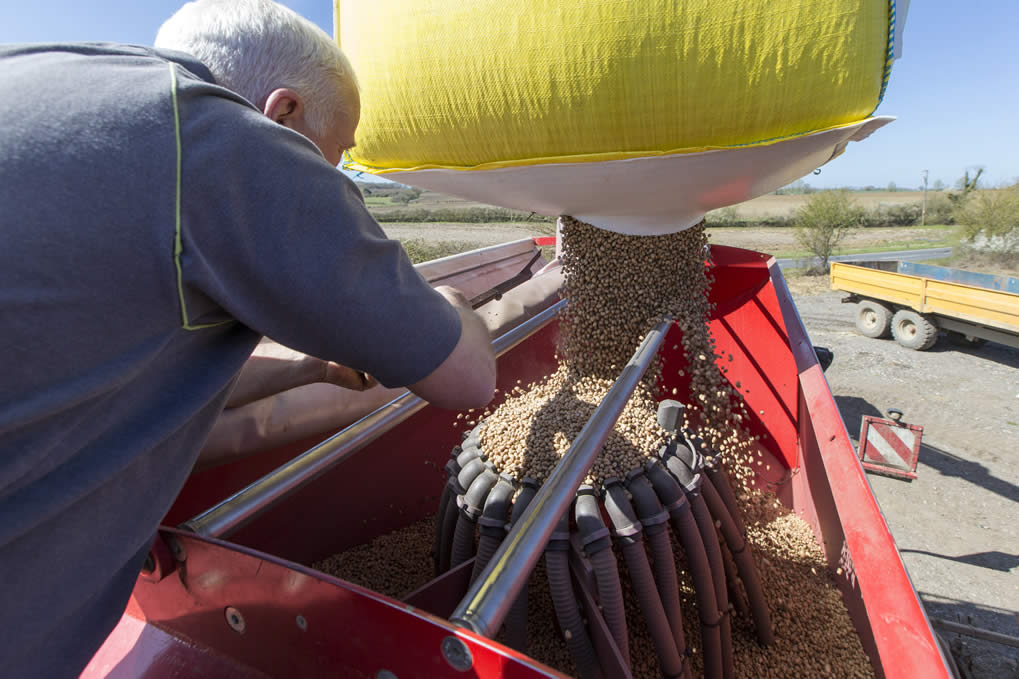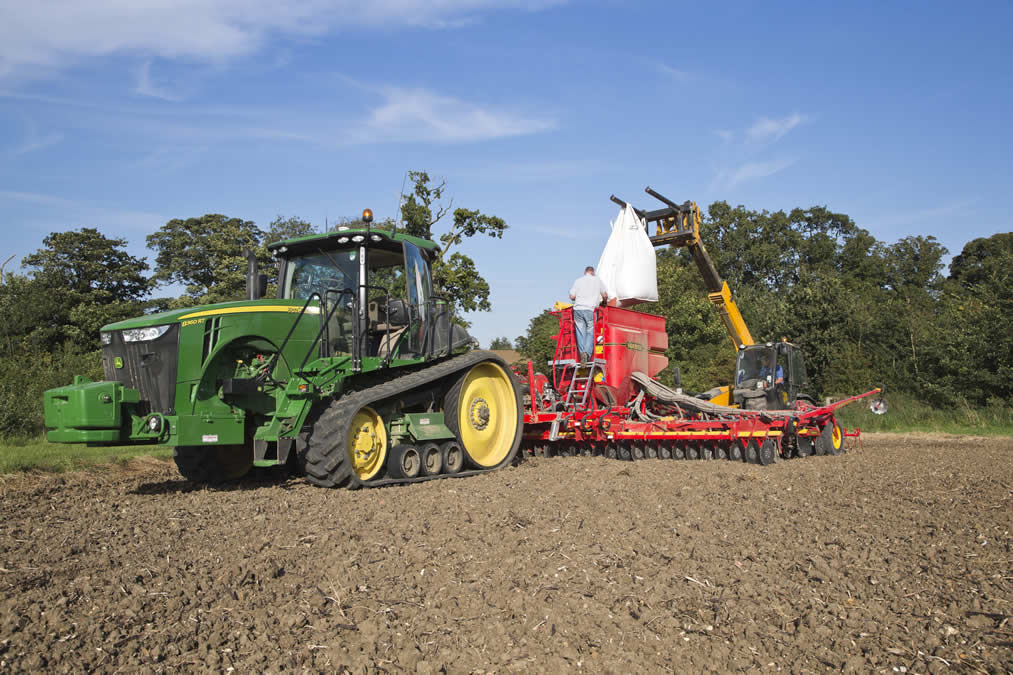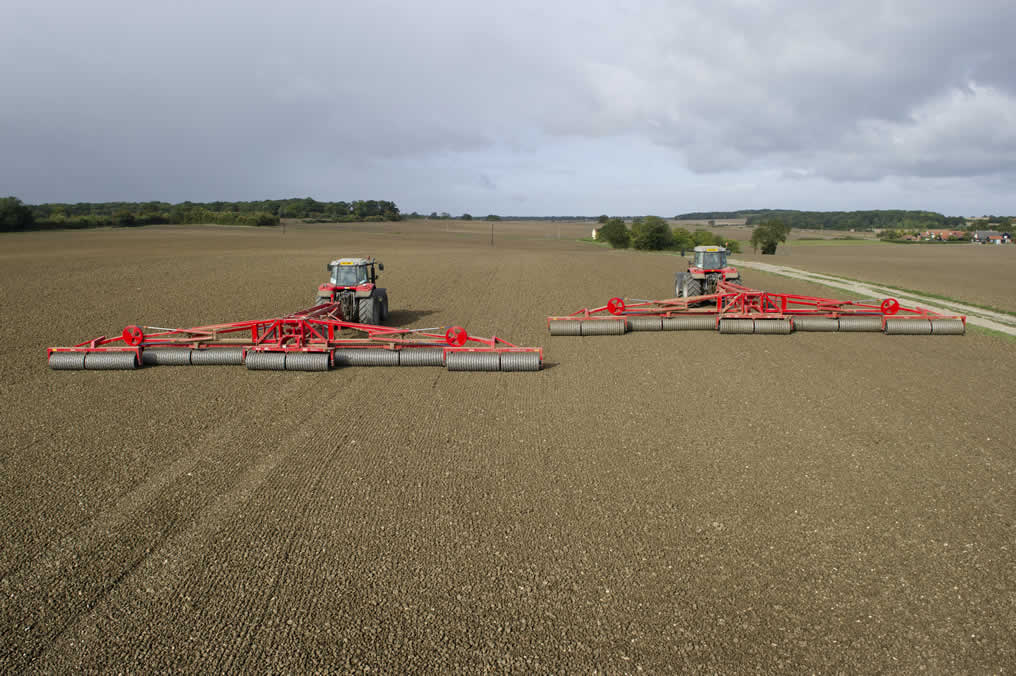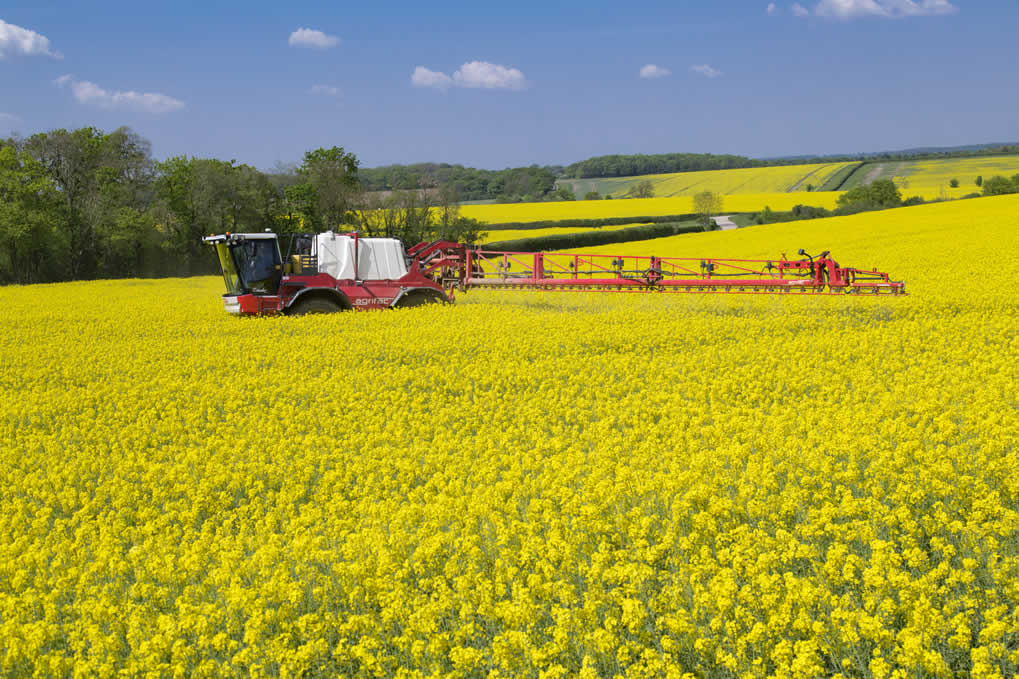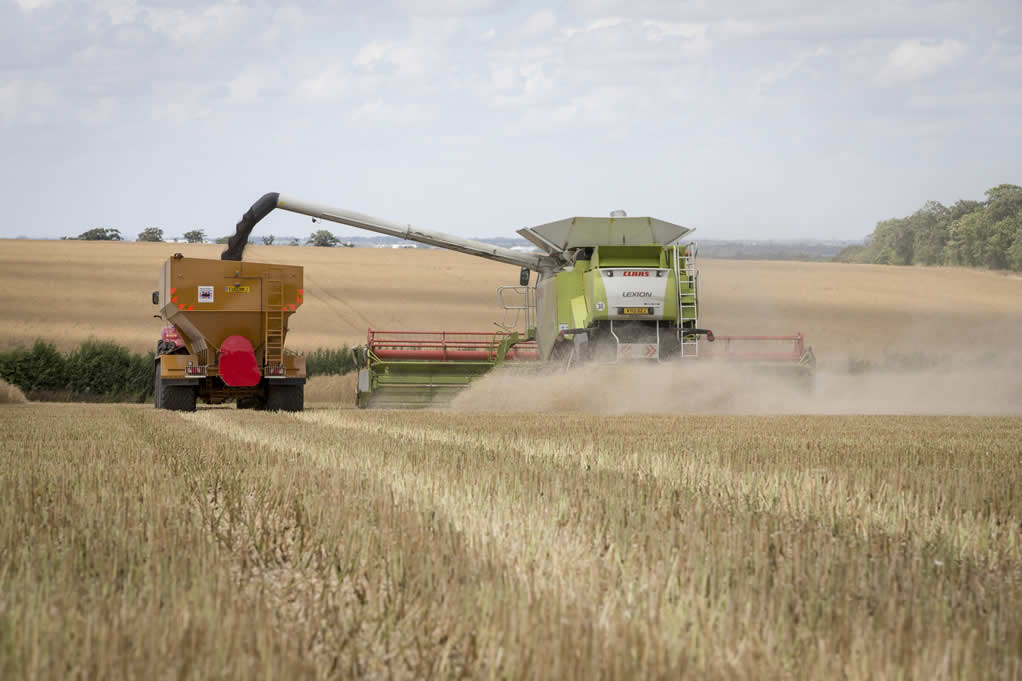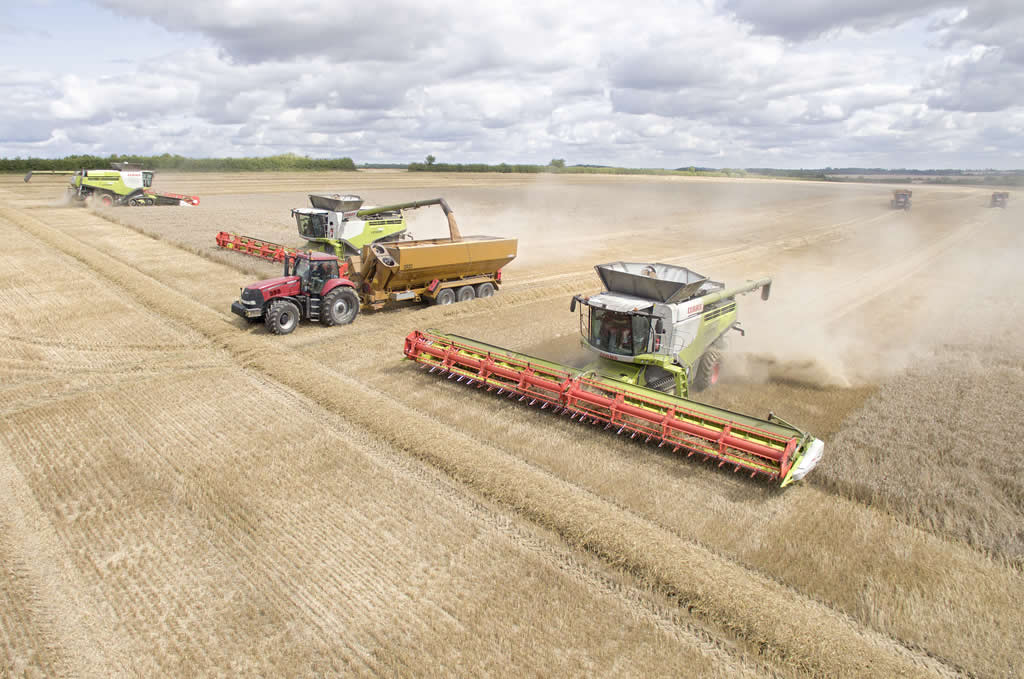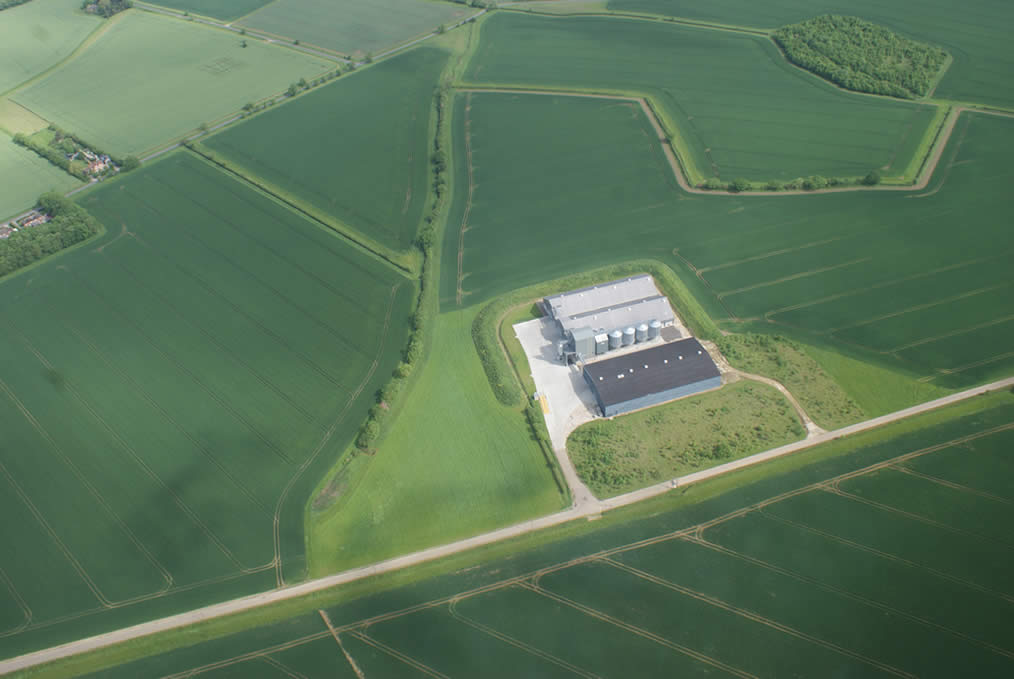FARMING
General
The Estate is farmed both "in hand"; and by adjoining farmers on tenancy agreements. The "in hand" operation is described below.
Thurlow Estate Farms Limited
The farming operation at Thurlow manages arable land and permanent pasture on the Essex, Suffolk and Cambridgeshire borders.
Weston Woods Farm is our operating base and is almost exactly in the centre of the holding from which we operate within a 7.5 mile radius in all directions. This site was a bomber airfield in the second world war, from which we benefit from good access roads and the use of a former hangar to form part of the grain store.
Rotation
The crop rotations reflect the dominant soil type in each area, so the light land (Balsham) rotation includes wheat, barley, oilseed rape, peas and sugar beet; whereas the heavy land (Ashdon/Horseheath/Shudy Camps/Thurlow) rotation includes wheat, barley, oilseed rape, beans and linseed. The areas of each crop are blocked so that we can operate as efficiently as possible, but at the same time maintain a diverse arable rotation.
Environment and Crop Assurance
The whole farm is entered into Stewardship Agreements with Natural England as Entry Level, and Mid- tier, Countryside Stewardship schemes. Sequential Catchment Sensitive Farming capital projects have also been carried out. Grass margins to protect field boundary features, and "field corner" management options dominate the agreements, along with rotational hedge cutting and ditch maintenance. The operation has been a member of Assured Combinable Crops since its inception and has recently gained LEAF status.
Staffing
We employ 13 skilled operators and key specialists, including grain storage and workshop roles. A regular training program ensures the team is up to date and includes specialist agronomic training as well as statutory requirements.
We employ a number of casual workers at harvest with a range of experience required to carry out key tasks during July to September.
Machinery
We use both wheeled and tracked units to carry out operations from general transport, through to primary cultivations ('ploughing/discing'). Crop protection and fertilizer applications are made by one trailed and 2 self propelled sprayers. Crops are established by 8 meter cultivator drills towed behind twin track crawlers.
The 40 meter tramline system minimises non crop area and works well with our liquid nitrogen fertilizer policy that delivers even applications and minimises waste. GPS guidance is to RTK level to achieve sub inch accuracy and repeatability year in year out.
Grain harvesting involves three combines also fitted with tracks, feeding 30 tonne chaser bins that unload into lorries for the onward trip to the grain store. This process has halved vehicle movements from our previous system of traditional tractor haulage.
Grain Storage
Our central grain store at Weston Woods was expanded in 2008, and is able to handle all our wheat harvest, in addition to a large proportion of the spring and winter beans. Satellite stores handle the majority of the other break crops. A 250kw solar PV scheme was added in 2013, which provides 55 percent of the electricity consumed during the year. The facility is able to handle grain at the same rate as it is harvested (unless moistures are very high) and the 1500 tonnes of buffer storage are used to blend crops.
Our Produce
Wheat is grown for milling, biscuit, export and feed. We are also pleased to supply both Weetabix and KitKat (amongst others). Oilseed rape is crushed in the UK and a large proportion is used in Hellmann's mayonnaise production. Winter barley is grown for both malting, animal feed and export; and sugar beet is processed by British Sugar at Bury St Edmunds and appears in supermarkets as the Silver Spoon brand. The majority of our beans are exported to the middle east as human grade produce and peas are grown for a local processor and are destined for retailers and food chain. Wherever possible we develop close links with processors to understand their exact needs are minimise food miles and maximise return.
Countryside Learning for Education
Throughout the year Thurlow Estate works closely with the Countryside Learning for Education. The mission of Countryside Learning is a simple one. It is to educate, inform and inspire children, parents and teachers, so they can enjoy and appreciate the countryside while having a greater understanding of the wide range of issues surrounding it.
Once a year approximately 150 school children aged between 6-12 years old join us on the Estate to learn about farming, woodland, cattle and visit our kennels.
Contact the Estate office by writing to the address or by email.

